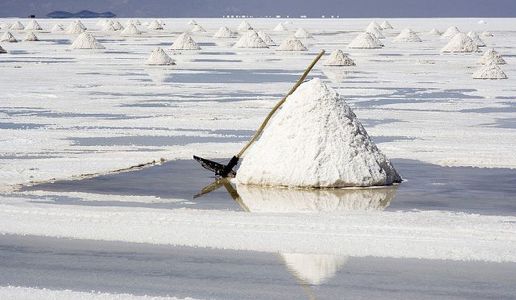Klinger Publishes Article on Latin America’s New Mining Frontiers
Julie Klinger, Assistant Professor of International Relations at the Frederick S. Pardee School of Global Studies at Boston University, recently published an article examining how surging demand for technology metals in Asia has led to the extension of new mining frontiers in Latin America and the degradation of some its most iconic landscapes.
Klinger’s article, entitled “Latin America’s New Mining Frontiers,” was published in Dialogo Chino on February 8, 2018.
From the text of the article:
The anticipated spike in demand for “technology metals,” including rare earth elements, lithium, niobium, and coltan, has ignited fierce debates over the development destiny of some of Latin America’s most iconic places. The remote Amazon, the Bolivian highlands, and the Sonoran desert in Mexico are rich in culture and biodiversity on one hand, and in geological endowments on the other. Some estimates put Latin America’s combined reserves of these elements at 50 million tonnes, or roughly 40% of known global supply. Mining technology metals presents a conundrum: is the sacrifice of local environments and livelihoods a fair price to pay for the proliferation of clean energy technologies?
Technology metals are so named because they are essential for modern technology as we know it, and are indispensable to the transition to clean energy technology. The practices of mining companies are as diverse as the landscapes they excavate. Mining companies from around the world have hastened to mine the lithium in Argentina, Chile, Bolivia, and Mexico to produce the batteries essential for electric cars, wind turbines, and other technologies. For several decades, Brazil’s certified niobium mine in the interior state of Minas Gerais has supplied most of the world’s energy efficient vehicles, steel structures, and airplanes with these super-alloys. Coltan, informally extracted in Colombia, is a crucial input into mobile phones, while several small-scale mining cooperatives have high hopes for the rare earth elements believed to be in the alluvial clay deposits of the Brazilian Amazon.
Julie Klinger specializes in development, environment, and security politics in Latin America and China in comparative and global perspective. She is currently completing a book project on the global geography of rare earth prospecting and mining, with a special emphasis on the development and geopolitics of resource frontiers in Brazil, China, and Outer Space.
